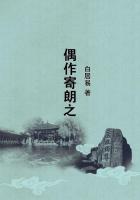By nature Henry VII. was neither overbearing nor devoid of tact, and from the doubtful character of his title to the throne he was obliged to be circumspect in his dealings with the nation. It was not so, however, with Henry VIII. He was a young, impulsive, self-willed ruler, freed from nearly all the dangers that had acted as a restraint upon his father, surrounded for the most part by upstarts who had no will except to please their master, and intensely popular with the merchants, farmers, and labourers, whose welfare was consulted, and who were removed so far from court that they knew little of royal policy or royal oppression. The House of Lords, comprising as it did representatives of the clergy and nobles, felt itself entirely at the mercy of the king, and its members, alarmed by the fate of all those who had ventured to oppose his wishes, would have decreed the abolition of their privileges rather than incur his displeasure, had they been called upon to do so. The House of Commons was composed to a great extent of the nominees of the Crown, whose names were forwarded to the sheriffs for formal confirmation. The Parliament of 1523 did show some resistance to the financial demands necessitated by the war with France, but the king's answer was to dissolve it, and to govern England by royal decrees for a space of six years. Fearing for the results of the divorce proceedings and anxious to carry the country with him in his campaign against the Pope, Henry VIII. convoked another Parliament (1529), but he took careful measures to ensure that the new House of Commons would not run counter to his wishes. Lists of persons who were known to be jealous of the powers of the Church and to be sympathetic towards any movement that might limit the pretensions of the clergy were forwarded to the sheriffs, and in due course reliable men were returned. That the majority of the members of the lower House were hostile to the privileges of the Church is clear enough, but there is no evidence that any important section desired a reformation which would involve a change of doctrine or separation from Rome. The legislation directed against the rights of the Pope sanctioned by this Parliament was accepted solely through the influence of royal threats and blandishments, and because the Parliament had no will of its own. Were the members free to speak and act according to their own sentiments it is impossible to believe that they would have confirmed and annulled the successive marriages of the king, altered and realtered the succession to meet every new matrimonial fancy of his, and proved themselves such negligent guardians of the rights of the English nation as to allow him to dispose of the crown of England by will as he might dispose of his private possessions. Henry VIII. was undisputed master of England, of its nobles, clergy, and people, of its Convocation, and Parliament.
His will was the law. Unless this outstanding fact, royal absolutism and dictatorship be realised, it is impossible to understand how a whole nation, which till that time had accepted the Pope as the Head of the Church, could have been torn against its will from the centre of unity, separated from the rest of the Catholic world, and subjected to the spiritual jurisdiction of a sovereign, whose primary motive in effecting such a revolution was the gratification of his own unbridled passions.
It is not true to assert, as some writers have asserted, that before the Reformation England was a land shrouded in the mists of ignorance;that there were no schools or colleges for imparting secular education till the days of Edward VI.; that apart from practices such as pilgrimages, indulgences, and invocation of the saints, there was no real religion among the masses; that both secular and regular clergy lived after a manner more likely to scandalise than to edify the faithful; that the people were up in arms against the exactions and privileges of the clergy, and that all parties only awaited the advent of a strong leader to throw off the yoke of Rome. These are sweeping generalisations based upon isolated abuses put forward merely to discredit the English mediaeval Church, but wholly unacceptable to those who are best acquainted with the history of the period. On the other side it would be equally wrong to state that everything was so perfect in England that no reforms were required. Many abuses, undoubtedly, had arisen in various departments of religious life, but these abuses were of such a kind that they might have been removed had the Convocations of the clergy been free to pursue their course, nor do they justify an indiscriminate condemnation of the entire ecclesiastical body.
It is true that the Renaissance movement had made great progress on the other side of the Alps before its influence could be felt even in educated circles in England, but once the attention of the English scholars was drawn to the revival of classical studies many of them made their way to the great masters of Italy, and returned to utilise the knowledge they had acquired for the improvement of the educational system of their country. Selling and Hadley, both monks, Linacre, one of the leaders of medical science in his own time, Dean Colet of Westminster whose direction of St. Paul's College did so much to improve the curriculum of the schools,[1] Bishop Fisher of Rochester described by Erasmus as "a man without equal at this time both as to integrity of life, learning, or broadminded sympathies" with the possible exception of Archbishop Warham of Canterbury,[2] and Sir Thomas More, Lord Chancellor of England and one of the earliest martyrs for the faith in the reign of Henry VIII., were but a few of the prominent men in a movement that made itself felt throughout the entire country. Nowhere did Erasmus find a more enthusiastic welcome or more generous patrons and nowhere were his writings more thoroughly appreciated than in England.















